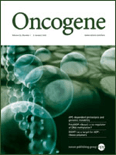
Advances in Cancer Biology-Metastasis
Scope & Guideline
Exploring the Frontiers of Cancer Biology.
Introduction
Aims and Scopes
- Mechanisms of Metastasis:
The journal focuses on the cellular and molecular mechanisms that facilitate the spread of cancer cells from primary tumors to distant organs, including studies on signaling pathways, cellular interactions, and the tumor microenvironment. - Therapeutic Strategies:
Research published in the journal often explores novel therapeutic approaches aimed at preventing or treating metastatic disease, including targeted therapies, immunotherapies, and combination treatments. - Biomarkers and Diagnostics:
Advances in Cancer Biology-Metastasis highlights studies that identify and validate biomarkers for early detection of metastasis, as well as research on diagnostic techniques that improve patient outcomes. - Tumor Microenvironment:
The journal emphasizes the role of the tumor microenvironment in metastasis, including interactions between tumor cells and stromal cells, immune cells, and extracellular matrix components. - Cancer Genetics and Epigenetics:
Research related to the genetic and epigenetic alterations in cancer cells that contribute to metastatic behavior is a core area of focus, including studies on mutations, gene expression changes, and epigenetic modifications.
Trending and Emerging
- Immunotherapy and Metastasis:
There is a growing interest in the role of immunotherapy in targeting metastatic cancer, including studies on immune checkpoint inhibitors and their effects on metastasis progression. - Liquid Biopsies:
Research into liquid biopsies as a non-invasive method for monitoring metastasis is on the rise, highlighting their potential for early detection and treatment response assessment. - Microbiome and Cancer:
The influence of the microbiome on cancer progression and metastasis is emerging as a significant area of research, exploring how microbial communities affect tumor behavior and patient outcomes. - Metabolic Reprogramming:
Studies examining the metabolic changes that occur in metastatic cancer cells are gaining prominence, with implications for understanding tumor growth and developing new therapeutic strategies. - Artificial Intelligence in Cancer Research:
The application of artificial intelligence and machine learning in analyzing cancer data and predicting metastatic behavior is becoming increasingly relevant, reflecting a trend towards data-driven approaches in cancer biology.
Declining or Waning
- Traditional Chemotherapy Approaches:
There has been a noticeable decline in publications focusing on traditional chemotherapy regimens for metastatic cancer treatment, as research shifts towards more innovative and targeted therapies. - In Vitro Models of Metastasis:
Research utilizing conventional in vitro models to study metastasis is becoming less prevalent, with a growing preference for more complex in vivo models that better mimic the tumor microenvironment. - Single-Agent Therapeutics:
The exploration of single-agent therapies is waning as the field moves towards combination therapies that target multiple pathways to effectively combat metastatic cancer. - Basic Cell Biology of Tumor Cells:
While foundational studies are essential, there has been a reduction in the publication of basic cell biology research without a direct connection to metastasis or therapeutic implications. - Epidemiological Studies:
The focus on epidemiological studies related to cancer metastasis has diminished, likely due to the increasing emphasis on mechanistic and therapeutic research.
Similar Journals

BIOCELL
Elevating Scientific Dialogue in Cell BiologyBIOCELL is a distinguished peer-reviewed journal dedicated to the field of Cell Biology, published by TECH SCIENCE PRESS. Since its inception in 1995, the journal has been at the forefront of disseminating innovative research, with converged publication years extending from 1995 to 2013 and from 2015 to 2024. Although it currently holds a Q4 ranking in the Cell Biology category according to the 2023 category quartiles, BIOCELL aims to foster advancements by providing a platform for researchers, professionals, and students to share their findings in biochemistry, genetics, and molecular biology. The journal is available in both print (ISSN: 0327-9545) and digital formats (E-ISSN: 1667-5746) and seeks to attract contributions that enhance scholarly dialogue and understandings of cellular mechanisms and innovations. With a commitment to quality research and critical discourse, BIOCELL plays an important role in nurturing the scientific community within Argentina and beyond, offering vital insights that contribute to the advancement of the life sciences.

CARCINOGENESIS
Illuminating Pathways in Cancer Biology and TherapyCARCINOGENESIS, published by Oxford University Press, is a premier journal dedicated to the nuanced field of cancer research. With an ISSN of 0143-3334 and an E-ISSN of 1460-2180, this esteemed journal plays a crucial role in disseminating high-quality research findings since its inception in 1980, making it a cornerstone in the exploration of carcinogenic processes. As of 2023, it stands out with a commendable Q2 ranking in Cancer Research and a Q1 ranking in Medicine (miscellaneous), reflecting its significant impact in advancing knowledge in these vital areas. Supported by a strong Scopus ranking, specifically holding the 61st position out of 230 in Biochemistry, Genetics, and Molecular Biology within Cancer Research, CARCINOGENESIS provides researchers, healthcare professionals, and students access to peer-reviewed articles that cover a broad spectrum of topics related to cancer etiology, prevention, and treatment. Although it is not an open-access journal, its commitment to excellence ensures that every published article contributes meaningfully to the global fight against cancer, making it an essential resource for those engaged in cutting-edge cancer research.

Annual Review of Cancer Biology
Transforming Insights into Cancer BiologyAnnual Review of Cancer Biology is a pivotal journal published by Annual Reviews, specializing in the rapidly evolving field of cancer research. With an impact factor positioned in the distinguished Q1 quartile of Cancer Research, Cell Biology, and Oncology categories, this journal ensures that it showcases the highest quality of scholarly contributions. Indexed in Scopus, it ranks among the top in its fields, reflecting its strong influence and relevance, with remarkable percentiles indicating its esteemed position within the research community. Although not an open-access journal, it provides a comprehensive platform for advancing the frontiers of cancer biology through rigorously curated reviews, highlighting key developments, breakthroughs, and future directions that inform both academia and clinical applications. As a valuable resource for researchers, professionals, and students, the Annual Review of Cancer Biology serves as an essential guide for understanding and addressing the complexities of cancer biology today.

CELLULAR AND MOLECULAR BIOLOGY
Exploring the Intricacies of Cellular MechanismsCellular and Molecular Biology is a prominent academic journal published by C M B ASSOC, specializing in the dynamic fields of cellular and molecular biology. Established in 1977, this journal has consistently aimed to disseminate groundbreaking research that contributes to our understanding of biochemical processes, cell dynamics, and molecular mechanisms governing life. With its ISSN 0145-5680 and E-ISSN 1165-158X, the journal plays a vital role in the exchange of innovative ideas, evidenced by its coverage of research from 1977 to 2024. Although currently categorized in the Q4 quartile for major disciplines such as Biochemistry and Cell Biology, it is dedicated to fostering the development of the field by welcoming submissions that challenge the conventional understanding and lead to novel insights. Researchers and academics looking to contribute to or stay updated in the rapidly evolving landscape of molecular biology will find this journal a valuable resource for connecting with a global community of scientists.

Molecular Cancer
Connecting researchers to revolutionize cancer care.Molecular Cancer, published by BMC, stands as a premier open access journal dedicated to advancing our understanding of cancer biology, treatment, and prevention since its inception in 2002. With an impressive Q1 ranking in the domains of Cancer Research, Molecular Medicine, and Oncology, this journal occupies a significant position in the academic landscape, emphasizing high-quality research that influences clinical practices and future studies. The journal is indexed in leading databases with exceptional Scopus ranks, reflecting its rigorous peer-review process and impactful contributions to the field, where it ranks in the top 2-3 positions across various relevant categories. Based in the United Kingdom, Molecular Cancer offers researchers worldwide a valuable platform for disseminating innovative findings that drive the biomedical community forward. The journal's open access model ensures that groundbreaking research is freely accessible, fostering collaboration and knowledge sharing among professionals, students, and academics alike. Explore cutting-edge developments in cancer research through Molecular Cancer and join a community committed to improving patient outcomes and advancing scientific discovery.

INTERNATIONAL JOURNAL OF ONCOLOGY
Exploring the frontiers of oncology research.INTERNATIONAL JOURNAL OF ONCOLOGY is a leading academic publication dedicated to advancing the field of cancer research and treatment. Published by SPANDIDOS PUBL LTD in Greece, this journal, with ISSN 1019-6439 and E-ISSN 1791-2423, has established itself as a reputable source of peer-reviewed articles since its inception in 1993. With an impressive Q2 ranking in both Cancer Research and Oncology categories, as well as high Scopus ranks reflecting its significant contribution to the fields of Medicine and Biochemistry, the journal offers a platform for researchers, clinicians, and students alike to disseminate their findings and engage in dialogue surrounding innovative practices and breakthroughs. Although the journal follows a traditional subscription model, it continues to attract a diverse readership interested in the latest developments in oncological research, providing essential insights into cancer biology, therapeutics, and patient care. With a commitment to excellence, the INTERNATIONAL JOURNAL OF ONCOLOGY plays a vital role in shaping the future of oncology research and is a must-read for anyone passionate about advancing cancer treatment and prevention.

CELL RESEARCH
Unveiling the Mysteries of Cellular MechanismsCELL RESEARCH is a premier peer-reviewed journal dedicated to advancing the field of cell biology and molecular biology, published by SpringerNature. With an impressive impact factor and consistently ranking in the Q1 quartile for both cell biology and molecular biology, this journal serves as a pivotal resource for researchers, professionals, and students seeking to explore the latest discoveries and advancements in cellular mechanisms and their implications for health and disease. Since its inception in 1996, CELL RESEARCH has cultivated a distinguished reputation, currently boasting ranks in the top percentile of Scopus categories, reaffirming its influence and relevance to the scientific community. Although it is not an Open Access journal, its rigorous selection process ensures the publication of high-quality articles that contribute significantly to our understanding of life sciences. For those deeply engaged in the realms of biochemistry, genetics, and molecular biology, CELL RESEARCH is an essential conduit of innovative research and critical insights.

CANCER SCIENCE
Unlocking the mysteries of cancer through rigorous research.Cancer Science, an esteemed journal published by Wiley, stands at the forefront of oncology research, boasting an impressive impact factor and a classification in the Q1 category for its contributions in Cancer Research, Medicine, and Oncology as of 2023. Since its inception in 2003 and transitioning to an Open Access model in 2014, the journal has facilitated global dissemination of critical research findings, ensuring that vital information remains accessible to researchers, clinicians, and students alike. With its comprehensive scope covering cutting-edge discoveries in cancer biochemistry, genetics, and molecular biology, Cancer Science is recognized for its rigorous peer-review process and significant contributions to advancing our understanding of cancer. The journal, located at 111 River St, Hoboken, NJ, is an essential resource for anyone dedicated to improving treatment outcomes and pushing the boundaries of cancer research.

ONCOGENE
Advancing Cancer Research Through Innovative InsightsONCOGENE is a premier peer-reviewed journal published by SpringerNature, serving as a crucial platform for innovative research within the fields of Cancer Research, Genetics, and Molecular Biology. With an impressive Impact Factor and a distinguished Q1 ranking across major categories, ONCOGENE publishes cutting-edge studies aimed at unraveling the complexities of cancer biology and genetic mechanisms. The journal has been a vital resource for the academic community since its inception in 1987, and it continues to foster rigorous scientific discussions and collaborations. Researchers, professionals, and students can access a wealth of critical insights and advances in cancer genomics and therapeutic approaches, cementing ONCOGENE’s role as a leading voice in the landscape of biomedical research. For comprehensive academic research, ONCOGENE remains an indispensable source of knowledge with contributions that significantly impact the evolution of cancer research and treatment strategies.

Cancer Research Communications
Bridging gaps in cancer knowledge and practice.Cancer Research Communications is an esteemed journal published by the American Association for Cancer Research, a leading organization in the field of oncology. This journal aims to advance knowledge in cancer research through the dissemination of high-quality, peer-reviewed articles that cover a wide range of topics related to cancer biology, treatment modalities, and prevention strategies. As an open-access journal, Cancer Research Communications ensures that vital research findings are accessible to a global audience, promoting collaboration and innovation within the scientific community. The journal serves as a crucial platform for researchers, professionals, and students to share their insights and foster the exchange of effective cancer therapies and methodologies. With a commitment to excellence, it plays a significant role in shaping the future of cancer research and therapeutic development.